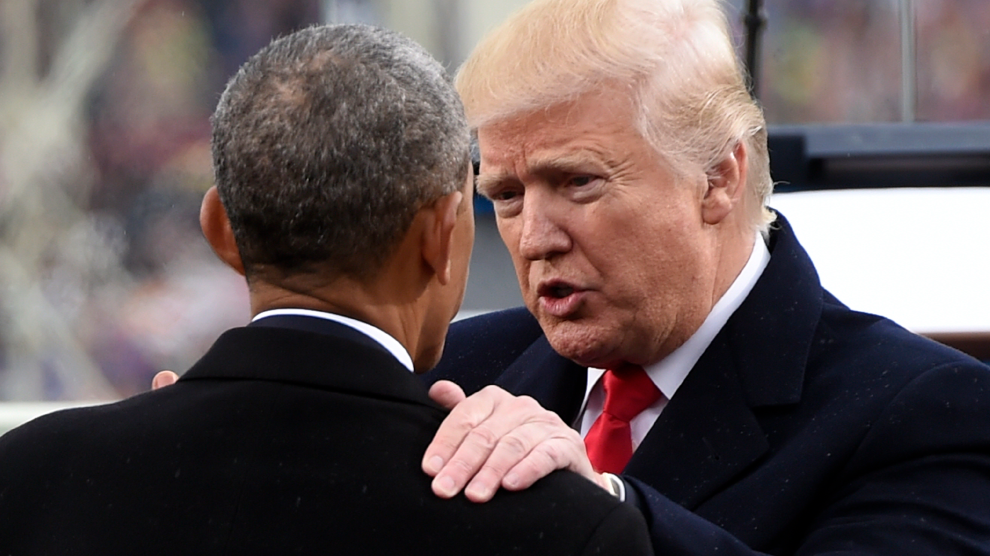
Laura KipnisPieter M. van Hattem
In the winter of 2015, a group of university students armed with mattresses, pillows, and petitions staged a protest at Northwestern University. The props were meant to evoke the sexual assault protests occurring on other campuses. Yet the object of these students’ ire was not a lecherous male professor or a sexually aggressive frat bro, but a feminist cultural critic and professor of media studies, Laura Kipnis.
Kipnis had just published an article in The Chronicle of Higher Education arguing that the university’s newly minted code prohibiting professor-student dating infantilized students and teachers, and that university administrators should have no role in the private lives of consenting adults. She asserted that “bona fide harassers should be chemically castrated, stripped of their property, and hung up by their thumbs in the nearest public square.” But “the myths and fantasies about power perpetuated in these new codes are leaving our students disabled when it comes to the ordinary interpersonal tangles and erotic confusions that pretty much everyone has to deal with at some point in life.” Kipnis triggered a storm of criticism from students, and shortly afterward she was told that two graduate students had filed Title IX complaints against her, alleging her essay and subsequent statements had created a hostile environment.
Thus began a 72–day investigation that inspired her book, Unwanted Advances: Sexual Paranoia Comes to Campus, published today, about sexual politics and academic freedom at universities. “If this is feminism,” Kipnis writes, “it’s feminism hijacked by melodrama.”
Kipnis, the author of seven books, appears to relish taking on hard-to-win arguments. In her 2015 book, Men: Notes from an Ongoing Investigation, she posited that Hustler magazine, which once featured a woman being put through a meat grinder on its cover, belongs in the “rabble rousing tradition of political pornography,” and that Anthony Weiner is “a humiliation artist.” She has even come out against love, which she says has become the “domestic Gulags” in our work-obsessed culture. “If sex seems like work,” she jokingly chides, “clearly you’re not working hard enough at it.”
With Unwanted Advances, Kipnis has placed herself at the nexus of two contentious battles playing out on university campuses: the debate over academic free speech and the approaches universities take in handling sexual-assault claims. “I can think of no better way to subjugate women than to convince us that assault is around every corner,” she writes, describing what she considers to be the paradoxically damaging effect of heightened consciousness about rape on college campuses. She compares closed-door, university-run sexual-assault hearings to McCarthyism and the Salem witch trials. “Zealous boundary-drawing and self-protective preciousness don’t auger well for the imaginative life,” she notes.
Kipnis knows her new book is controversial and suspects it “is going to test the limits of what can and can’t be said about the sexual and intellectual situation on campus and beyond.” I talked to Kipnis about her Title IX investigation, unwanted bedfellows (of both the intellectual and sexual variety), feminism, and the challenges of tackling these subjects.
Mother Jones: This was a really hard interview to prepare for. I kept hearing all your critics’ arguments in my head.
Laura Kipnis: I have the exact same problem. It’s a hard subject to write on because you find yourself preemptively answering the critics and then getting bogged down in some of these statistics or having to qualify what you’re saying. “Campus assault is a serious issue, but…” The chorus of voices in your head is definitely an impediment to trying to push past what the current conversation is. There is such an electrified sense around even discussing some of those things. People will automatically get accused of the victim-blaming and slut-shaming. This is why so many people are reluctant to start the conversation to begin with. You encounter all of these credential checks. Are you really a feminist? I was accused by somebody of profiteering off rape.
MJ: You say that you want to push past what the current conversation is. Where do you wish the conversation would go?
LK: On the question of women’s sexual freedom or female independence, there are still issues that haven’t been worked out. There’s an aura of traditional gender roles that is not talked about that really permeates these conversations. There is this vacillation between a desire for independence and having the kinds of sexual freedom that men have and, on the other side, issues about female vulnerability and susceptibility to male aggression and violence. We need more honesty about the actual conditions in which sex is happening. I talk about the levels of binge drinking in the last chapter. That is a symptom of something. It’s not, “We’re all just having fun here.”
MJ: Do you ever get tired of making arguments that cause so much outrage?
LK: Something I’ve been thinking about—one of those middle of the night “how to live” sort of questions—is whether you want to be someone who allows yourself to be shut up by critics, or backs down out of fear of ruffling feathers. When I wrote the first Chronicle piece, and there was first the campus protest march, then the Title IX complaints, it started seeming like there was a joint effort to shut me up. Which made me determined to write more, and not pipe down—out of orneriness if nothing else. It was the attempts to shut me up that really convinced me I was onto something.
MJ: Do you worry about people relying on sound bites to represent your argument, which is pretty complex?
LK: Making the kind of argument I am making does make you less media friendly. I do despair about having a four-minute slot on some TV show and trying to condense the type of argument I’m making in the book into the four questions you get asked. So that’s a problem. One way of dealing with this is just to stay off Twitter. Nobody young is able to do that, [and] when you have a book out staying off Twitter is harder. But it’s important to try to stay out of the stupid conversations. But yeah, I do feel a bit despairing in advance of trying to get points across in the four-minute media slot or the adversarial kind of situation.
MJ:Power is a common theme in your book. You talk about how students actually have a lot of power because they can get professors fired. On the other hand, there’s a kind of power I don’t think you discuss: The power to revoke mentorship, which can be devastating, particularly in graduate school. Grad students are a dime a dozen, but a good mentor is really hard to find.
LK: That’s a really interesting way of putting it. It’s always the case regardless of whether sex is involved. Mentorship can always be retracted. A grad student I know had mentorship revoked because of a student unionization effort that his professors were against, and he ended up having less of a career than he might have had. I would probably say that I would be in favor of some kind of code of best practices about situations like this. If there is a sexual relationship between a professor and a student then gets reported to the chair or something like that. That the person refrains from writing letters or being on committees that make some kind of assessment. But I think that relations between professors and grad students can be messy and not entirely boundable. Part of the problem is that those boundaries become eroticized. I don’t think people are quite so managerial with their sexuality. By suggesting that sex can be successfully regulated, we’re imposing stupidity on the issue.
MJ: You mentioned earlier that people have accused you of being a rape apologist. What do you say to them?
LK: I would say that we’re abandoning due process and being overly sentimental about this claim of victim or survivor status. There are a lot of ambiguous situations that are getting transformed into sexual-assault complaints. It’s very easy to file a sexual-assault complaint on campus and there’s very little scrutiny of the claims when they’re adjudicated. One of the other issues is that we’re mistaking a small cadre of activists for what all students are thinking on campus. There are plenty of students on campus who are not on board with all of this. There are a lot of divisions.
MJ: So what’s the way forward? Administrators aren’t going to want to appear soft on sexual assault. How could this be handled more fairly both for people making the claims and for the accused?
LK: It may be the courts. A lot of these cases are coming through from male students who have been subject to campus overreach. These cases are getting turned back by the courts. But you have to have a lot of money to bring a lawsuit. Weirdly—and this is where the politics of this becomes very confusing—it’s the right, particularly on free-speech issues, that is pushing back.
For women’s sake, I think all of these cases should be made public. Somebody mentioned to me that at their school there was some kind of report with names redacted released every week so people could see what kinds of crimes are happening. I think sexual assault should be treated this way. I’m all for redacting names. But we need to know: What were the details? What were the circumstances? To some degree that’s educational. One of the arguments would be that rather than turning toward the punishment model, we want to turn back toward the education model and transparency about what is actually happening and what is necessary to educate women in particular. It can’t only be men who are the focus of assault prevention. Women should be too. To say that that puts the blame on victims to have to prevent their own assault is crap and has to be treated as crap.
MJ: You’re a leftist. Are you worried that groups you don’t want to be associated with might appropriate your arguments?
LK: I have some worry as a leftist that the book is going to get taken up on the right by people I would not be happy to be politically affiliated with. I’m not thrilled about that possibility. Though I’ve also been pretty viciously attacked on Twitter by men’s rights activist types after making a joking remark in the first Chronicle essay about chemically castrating harassers and seizing their property. One guy threatened to cut my breasts off, among other lovely remarks. I did a lot of signaling throughout the book about my leftist feminism and made arguments consistent with that, about resource reallocation and so on. But you can’t control what stupid arguments people are going to make about your work. It’s less the MRA types who concern me, since I think of them as threatened dweebs, honestly. It’s the knee-jerkism of people closer to my own side I really despair about. I think the left-right divisions are really unclear on this. I don’t think that the forms of feminism that are prevailing on campus are left wing. It’s a conservative form of feminism in gender politics and there [isn’t] anything particularly progressive about it. That’s what is baffling. You’ve got conservatives acting like liberals touting free speech and due process.
MJ: Your Title IX investigation was decided in your favor, and the investigators dropped the hostile environment complaints. Did you ever worry that it wouldn’t go your way?
LK: I didn’t worry really that I was going to get fired. I did think that I could be found culpable [of creating a hostile environment] and that would be thrown around in the media by the accusers. I suspected they would have to throw a bone to the accusers. I did think in the back of my mind that if that happened and if I went public, which I was pretty sure I was going to do, that would [create] a huge academic-freedom stink. But I also thought it would put Title IX in the spotlight in terms of if it preventing free speech, and then that would become a big national issue. In my private thoughts I speculated about whether my being found culpable would move the conversation along. At this moment, so many calculations are off on what’s going to happen nationally.
MJ: Do you worry that this book will spark a new investigation?
LK: You can never predict how something will land.

















